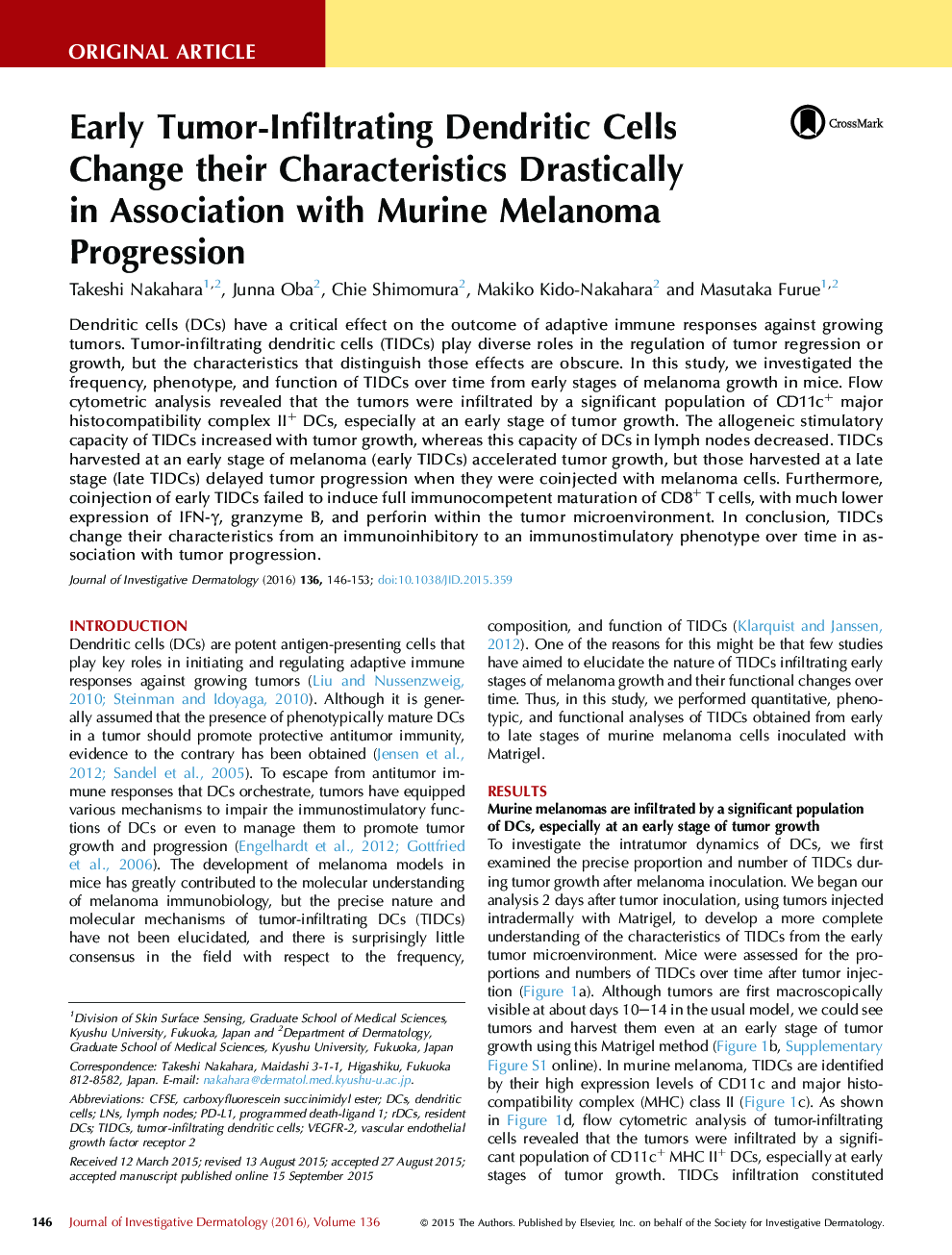| Article ID | Journal | Published Year | Pages | File Type |
|---|---|---|---|---|
| 6074783 | Journal of Investigative Dermatology | 2016 | 8 Pages |
Dendritic cells (DCs) have a critical effect on the outcome of adaptive immune responses against growing tumors. Tumor-infiltrating dendritic cells (TIDCs) play diverse roles in the regulation of tumor regression or growth, but the characteristics that distinguish those effects are obscure. In this study, we investigated the frequency, phenotype, and function of TIDCs over time from early stages of melanoma growth in mice. Flow cytometric analysis revealed that the tumors were infiltrated by a significant population of CD11c+ major histocompatibility complex II+ DCs, especially at an early stage of tumor growth. The allogeneic stimulatory capacity of TIDCs increased with tumor growth, whereas this capacity of DCs in lymph nodes decreased. TIDCs harvested at an early stage of melanoma (early TIDCs) accelerated tumor growth, but those harvested at a late stage (late TIDCs) delayed tumor progression when they were coinjected with melanoma cells. Furthermore, coinjection of early TIDCs failed to induce full immunocompetent maturation of CD8+ T cells, with much lower expression of IFN-γ, granzyme B, and perforin within the tumor microenvironment. In conclusion, TIDCs change their characteristics from an immunoinhibitory to an immunostimulatory phenotype over time in association with tumor progression.
